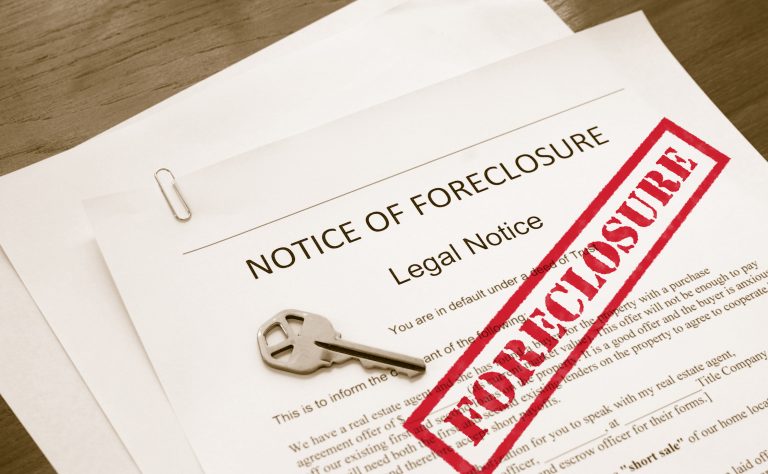
When you approach financial institutions to get a loan or grants i.e. financial facilities, most often than not they will ask you to present a property that is worth more than the loan you are requesting which will serve as collateral or security for the mortgage sum; the reason for collateral is because of the presumption that you may likely not want to pay back within the time frame you are given to pay back or you may elope with their money; so when you refuse to pay back within the time frame the collateral or security you presented will be foreclosed or taken over by the lenders. The money lender can either keep security for themselves or sell it off as a way of recovering back the money they lent to you.
The money you were given is called the loan or mortgage sum, the property you used to secure the loan is called the collateral or security, and the act of taking over your property i.e. the collateral by the lender for your failure to repay the loan within the expected time frame is called foreclosure.
Mortgage in a simpler term is a legal agreement by which a bank, building society, financial institutions, government etc lend money at interest in exchange for taking the title of the debtor’s property, with the condition that the conveyance of title becomes void upon the payment of the debt and the borrower have the right to repossess his property after repayment of the loan sum and the interest.
Register for Tekedia Mini-MBA edition 19 (Feb 9 – May 2, 2026): big discounts for early bird.
Tekedia AI in Business Masterclass opens registrations.
Join Tekedia Capital Syndicate and co-invest in great global startups.
Register for Tekedia AI Lab: From Technical Design to Deployment (next edition begins Jan 24 2026).
It is an agreement between a person and a lender that gives the lender the right to take over the borrower’s property if the borrower fails to repay the money he borrowed with the interest.
Foreclosure, on the other hand, is, therefore, a term for the processes used by a lender, mortgage-holders, or mortgagees, to take over a collateral or mortgaged property from a borrower who defaults on their mortgages.
You have no legal rights in law to stop or resist a lender from taking over your properties or foreclosing on the collateral when you have failed to pay back the mortgaged sum with the interest within the time frame you were given; although you may be granted extra time to pay and put a hold on the foreclosure, but that can only happen in the court of equity and not in the court of law.
The purpose of this piece is to let you know that inasmuch as you are taking loans or financial facilities from financial institutions, agree on a repayment plan that will work for you because failure to pay back the loan on the expected time frame, the property you used as collateral will be foreclosed on by the lender and there is nothing you can do about it; you do not even have the legal rights to resist or stop the lender from possessing your property and the court of law cannot help you.


